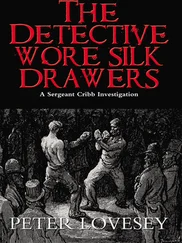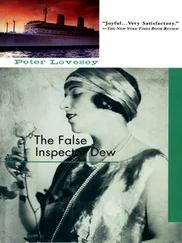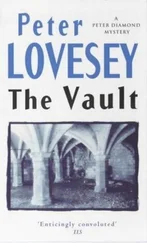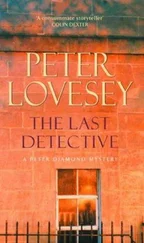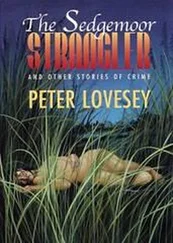Revived and resolute, Donna stood and checked to make sure no one was about. Perfect. She had the whole headland to herself...
Well, then.
What it was that drew her attention back to the bench she couldn’t say. At the edge of her vision she became aware of a small brass plaque screwed to the top rail. She read the inscription.
In memory of my beloved wife Donna Maria Culpepper, 1967–2004, who loved to walk here and enjoy this view.
A surreal moment. Donna swayed and had to reach out and clutch the bench. She sat again, rubbed her eyes, took a deep breath and looked a second time because she half wondered if her heightened state of mind had made her hallucinate.
The words were just as she’d first read them. Her name in full. She’d never met anyone with the same name. It would be extraordinary if some other Donna Maria Culpepper had walked here and loved this view. The year of birth was right as well.
Two things were definitely not Donna. She hadn’t died in 2004 and the way her rat of a husband had treated her made the word ‘beloved’ a sick joke.
Was it possible, she asked herself now, still staring at the weird plaque, that Lionel had paid for the bench and put it here? Could he have heard from some mistaken source that she had died? Had he done this in a fit of conscience?
No chance. Freed of that foolish infatuation she’d experienced when she met the man and married him, she knew him for what he was. Conscience didn’t trouble Lionel. He’d had the gall to ask for a divorce — through a solicitor and after weeks of silence. He was cowardly and callous.
How could this bench be anything to do with Lionel, or with her?
It was a mystery.
Cold logic suggested there had been another Donna Maria Culpepper born in the same year who had died in 2004 and had this touching memorial placed here by her widowed husband, who was obviously more devoted and considerate than Lionel. And yet it required a series of coincidences for this to have happened: the same first names, surname, date of birth.
She took another look. In the bottom right corner of the plaque was a detail she hadn’t noticed — the letters ‘L.C.’ — Lionel’s initials. This, surely, clinched it. The odds against were huge.
She no longer felt suicidal. Anger had taken over. She was outraged by Lionel’s conduct. He shouldn’t have done this. She had come here in a wholly negative frame of mind. Now a new challenge galvanized her. She would get to the truth. She was recharged, determined to find an explanation.
First she had to find him. After their break-up she’d had minimal contact, and that was through solicitors’ letters. She had no idea where he lived now.
She walked down the path towards the town.
The Parks and Recreations Department at Eastbourne Council said that about forty seats had been donated as memorials by members of the public. A helpful young woman showed her the records. The bench had been presented last spring. A man had come in with the plaque already inscribed. He’d particularly asked for a teak seat to be positioned at the top of Beachy Head. He’d paid in cash and left no name, though it was obvious he had to be a Mr Culpepper.
Donna asked if he’d left his address or phone number and was told he had not. She took a sharp, impatient breath and explained about the shock she’d had. The clerical assistant was sympathetic and said it could only be an unfortunate duplication of names.
While Donna was explaining why she thought it couldn’t be coincidence, an assistant at the next desk asked if they were talking about the seat at the top of Beachy Head. She said a few months ago she’d had someone else in, a woman, asking about the same seat and the man who presented it.
“A woman? Did she say why?” Donna asked.
“No, but she left her business card. I put it in the folder, just in case we found out any more.”
The card had slipped to the bottom of the folder. Donna was given a pencil and paper to make a note of the name and phone number. Maggie Boswell-Jones, Starpart Film, TV and Theatrical Agency, Cecil Court, Off Charing Cross Road, London. There were phone, fax and e-mail numbers.
Donna didn’t have her mobile with her. She hadn’t intended using it on this last day of her life. She used a public phone downstairs.
The conversation was all very bizarre.
“You’re Lionel’s wife? But you’re dead,” Maggie Boswell-Jones said. “You were killed in a flying accident.”
“I promise you I wasn’t,” Donna said. “I’m who I say I am.”
“How can you be? There’s a seat on Beachy Head with your name on it. Lionel put it there in your memory.”
“He ran out on me in the second month of our marriage. May I ask why you were looking for him?”
“Because he’s my boyfriend, darling, and he’s missing.”
Donna felt as if she’d been kicked in the stomach. She knew Lionel was a rat. Now she knew he was a two-timing rat. He’d walked out on her and started up with this woman. She made an effort to save her fury for Lionel.
“How did you know about the seat?”
“He took me up there specially. He wanted me to know that you were dead. I made it very clear to him that I don’t get involved with married guys. He spoke nicely of you.”
“Look, can I come and see you?”
“Is that necessary?”
“I’m determined to find him. With your help I’m sure I can do it.”
At the agency Donna recognised a man who stepped out of the lift. He was an actor she often saw in Coronation Street . In the waiting room upstairs there were framed movie posters. In a glass showcase were various awards, including what looked like an Oscar.
Maggie appeared high-powered with her black fringe, tinted glasses and purple suit, but she turned out to be charming. Coffee and biscuits were ready on a low table in her office. They sat together on a black leather sofa. “I’ve been trying to understand what’s going on with Lionel ever since you phoned and I’m still at a loss,” Maggie said. “He’s such a bright guy. I can’t think how he got to believe you’d passed away.”
“He made it up,” Donna said.
“Oh, I don’t think so. He said the kindest things about you. I mean, why would he go to the trouble and expense of buying a seat for you?”
“To fool you into believing I was dead and he was free to have an affair. Can’t you see that?”
Maggie took a lot of convincing. Clearly she was still under Lionel’s spell. Just as Donna had believed him incapable of leaving her, so Maggie insisted he must have lost his memory in the flying accident.
“There was no flying accident,” Donna said. “He talked about taking me in a plane, but it never happened. He took ninety thousand pounds from our account.”
“Really? This shocks me.” The colour had drained from Maggie’s face. “I certainly need to find him because I lent him sixty grand to renovate a house he’d bought for us in the south of France.”
“You’ll never see that money again,” Donna said. “He’s a conman. He befriends women like you and me and fleeces them. If you don’t mind me asking, how did you meet him? Was it through a newspaper?”
“What a skunk!” Maggie said, and Donna knew she’d got through to her at last.
That evening Maggie took Donna for a meal at a restaurant near the agency. “I’m not short of a bob or two,” she said, “but let’s admit it, I’m unattached and on the lookout. I meet plenty of hunky blokes in my job, but it doesn’t do to mix work and pleasure, so I put my ad in the Guardian. Lionel was the best of the bunch who responded — or seemed to be.”
“I wonder how many other women he’s conned,” Donna said. “It really upsets me that he went to all that trouble to make out I was dead and he was a free man. There must be some way of stopping him.”
Читать дальше

